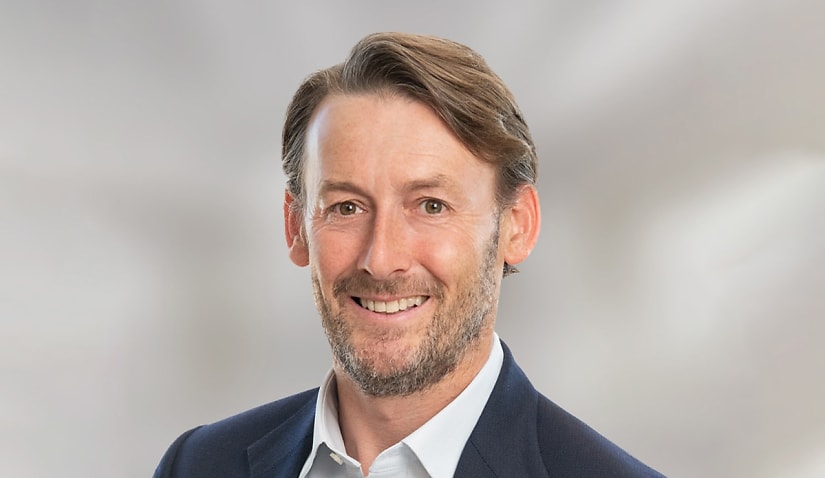In a recent video interview, the Australian managing partner of global firm Clifford Chance reflected on some of the best career advice he’s received over the years, including the need to be wary of advice you’re receiving, and avoiding being too patient or not patient enough.

In an episode of Legal Firesides – produced exclusively for subscribers of Lawyers Weekly Premium – Clifford Chance Australian managing partner Mark Currell (pictured) discussed lessons that he’s learnt over the course of his professional journey, Sydney being established as a major Asian hub, and how the global firm plans to evolve Down Under.
Don’t plan more than 2 years ahead
Currell, who was appointed as the firm’s Australian head earlier this year, noted that becoming managing partner of one of the biggest law firms in the world “certainly wasn’t something I ever aspired to” – which perhaps is a result of staying true to advice he received early in his legal career, that one should only look to plan two years ahead. If one plans more than two years in advance, he said, “you don’t control that much”.
This early advice, he explained, has served him well insofar as whatever one predicts or hopes to happen within two years “almost certainly won’t happen exactly the way you expect it to”.
“It allows for that flexibility in the flow of your personal life or your professional career, and allows you to adapt to what’s in front of you,” he said.
Currell explained that lawyers need “four core characteristics” for success: talent, ambition, energy, and “a lot of luck”. When he looks back on his career, and how and why he got to the role he now occupies, a combination of the abovementioned characteristics has “made all the difference” on numerous occasions.
“There was a lot of hard work and effort that put me in the right place at the right time, but without bits of luck [through] meeting certain people, or doing certain deals, or meeting certain clients, I wouldn’t have risen up through the ranks and had the opportunity to be managing partner,” he said.
Advice bias
Currell also warned lawyers coming through the ranks to “be very careful who you take advice from”, noting that advice bias is to be avoided.
“People will often advise you to do what they did as a way of self-validation for themselves,“ he said.
“Beware of the decisions they’ve made, and be very cautious if someone is basically advising you to do what they did, because often, they may not be doing that intentionally or unintentionally. It may not be in the lens of you, it may actually unintentionally be about them.”
Often, Currell noted, one doesn’t know what’s good advice or bad advice until a later point in time.
“I look at where I got the good advice from and when you find those people. There’s one person in my life, my father-in-law, has been particularly helpful for me. When you find that person, go back to the well and get more advice from the people who give good advice,” he said.
“You’re building a career in law generally between your early 20s, and people are now making partner in their late 30s, early 40s. That’s a long time. Then, when you become partner, it’s a completely different world again, and you’re building a different kind of platform, at that point in time, [you need to] take advice from the right people, and that’s often people who’ve been before you or people have built success in different careers and that success doesn’t need to be in business.”
Patience
Elsewhere, when asked how lawyers who are predisposed to competitiveness and perfectionism can temper their expectations and longer-term planning, Currell said it’s natural for people to set a goal and want to achieve it.
“I think the advice I wish I’d had, or I’ve learned, is [that] you’ve got to maintain that ambition and those goals and strategise around how you’re going to get there. I think the key thing that people miss in law firms is success in law firms is about a series of alliances with other people,” he said.
“Build those alliances and, over time, help other people, and they will help you be part of a team and demonstrate some patience.”
Striking the right balance with one’s patience means, Currell said, that “you don’t want to demonstrate too much patience, but you don’t want to demonstrate too little patience”.
“I’ve certainly seen people adversely impact their careers by not showing enough patience, maybe leaving a firm earlier than they should have done, because they weren’t getting promoted to partner or promoted to another position where if they’d just given it another year, it would probably have worked out – but it’s difficult in the moment,” he said.
“Life is about making good decisions, and often, you don’t know they’re good decisions until two, five, 10 years later down the track.”
To view the full interview with Mark Currell, you must be subscribed to Lawyers Weekly Premium. To sign up, click here.

Jerome Doraisamy is the managing editor of professional services (including Lawyers Weekly, HR Leader, Accountants Daily, and Accounting Times). He is also the author of The Wellness Doctrines book series, an admitted solicitor in New South Wales, and a board director of the Minds Count Foundation.
You can email Jerome at: